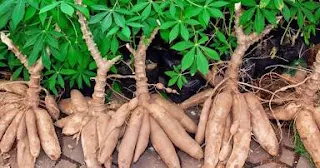Africa's Raw Material Curse: Why the Continent Must Industrialize or Stay Poor
"A man who does not process his cassava will eat garri from another man’s pot." — African Proverb
Nigeria, the world’s largest cassava producer, contributes about 18% of global cassava output. Yet, according to Olayinka David West, Dean of Lagos Business School, Pan Atlantic University, the country captures a mere 2% of the crop’s $180 billion global processing market. This stark disparity is not just a Nigerian problem—it is Africa’s story in miniature.
Africa: The World’s Raw Material Backyard
For centuries, Africa has been the world’s supplier of raw materials while others reap the profits. Consider these sobering facts:
- Cocoa: Ivory Coast and Ghana produce over 60% of the world’s cocoa, yet less than 5% of global chocolate revenue ($130 billion industry) returns to the continent.
- Gold: Africa holds 40% of the world’s gold reserves, but Switzerland with no gold mines refines 70% of global gold and dominates trading.
- Oil: Angola and Nigeria are top oil producers, but Europe and Asia refine and sell back petroleum products at 300% markups.
- Lithium: The Democratic Republic of Congo supplies 70% of cobalt for batteries, while China controls 80% of battery production.
The Poverty Paradox: Rich Land, Poor People
This extraction model ensures Africa remains poor. The math is brutal:
"Selling raw cashew nuts earns Africa $2/kg. Processed kernels fetch $15/kg. Roasted and packaged? Over $100/kg."
Every time Africa exports unprocessed goods, it loses:
- Jobs: Processing creates 10x more employment than extraction.
- Value: A $1 raw export becomes $20 after processing.
- Innovation: Factories drive R&D; mines don’t.
Breaking the Chains: Industrialize or Perish
Africa cannot continue being the world’s quarry. Here’s how to change the game:
- Ban raw exports: Like Indonesia did with nickel, forcing battery plants to relocate.
- Invest in processing: Tanzania now bags 40% more profits by selling processed coffee instead of beans.
- Protect infant industries: Ethiopia’s leather export ban helped build a $1 billion shoe industry.
"The lion’s share goes to the lion, not the antelope." This African adage perfectly captures the current imbalance. But lions don’t stay cubs forever. With strategic policies, Africa must transition from being the hunted to joining the hunters in the global economic jungle.
The world got rich by adding value to raw materials. Africa must do the same—or remain poor forever.
What’s your take? Can Africa break free from the raw material trap? Share your thoughts below.
Follow Eze for more updates


